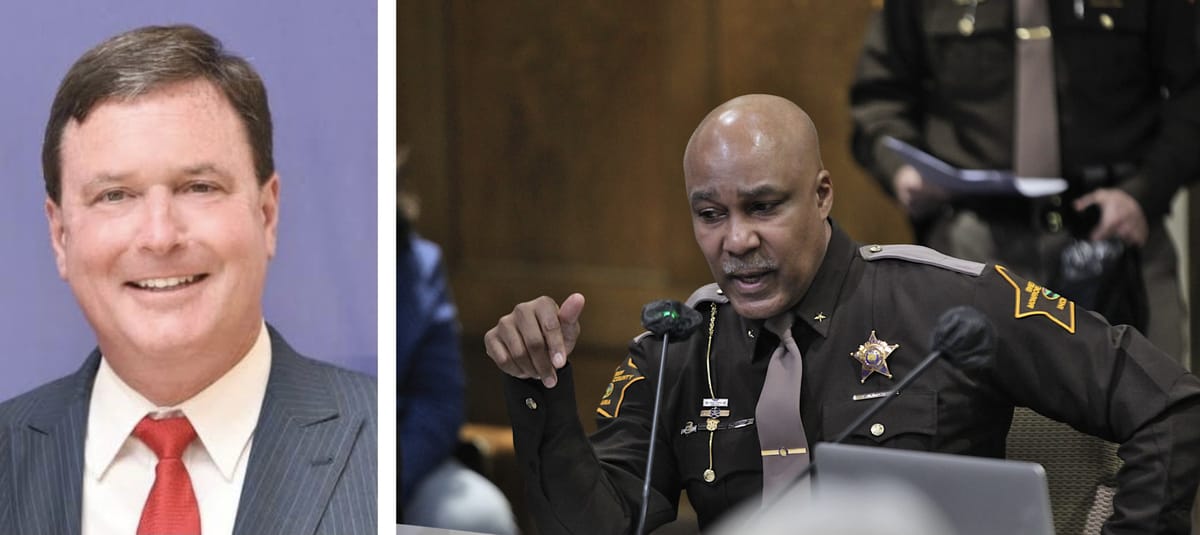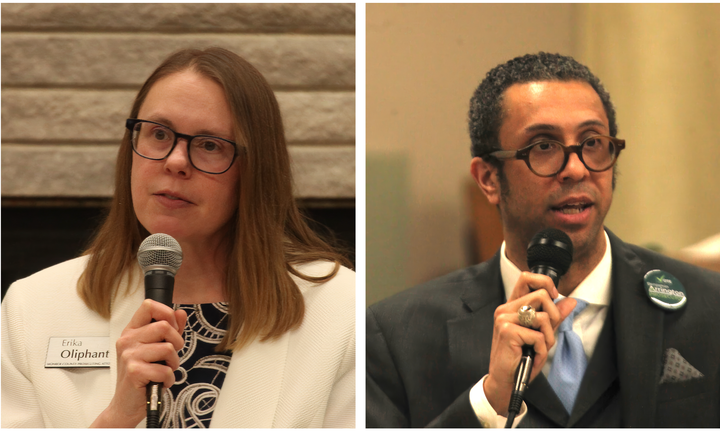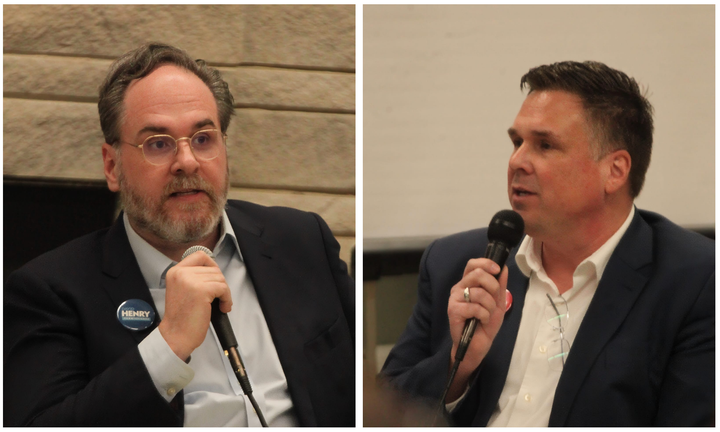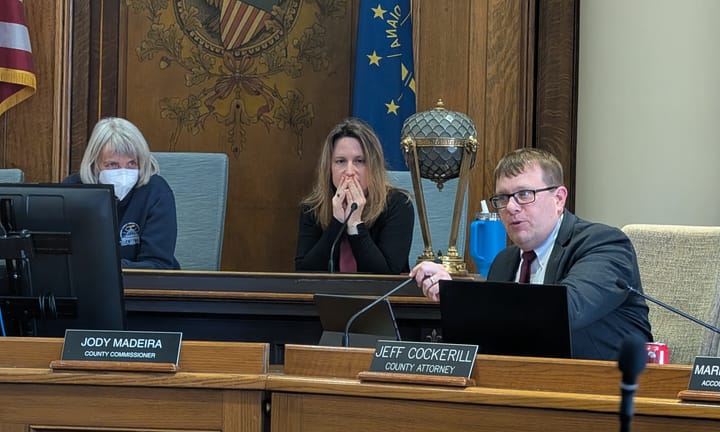Rokita v. Marté: After May 7, court set to rule on Monroe County sheriff's immigration enforcement policy

Sometime after this coming Wednesday (May 7), a court ruling could be issued on Monroe County sheriff Ruben Marté's policy for dealing with the immigration status of suspects.
The case is in front of special judge Lucas Rudisill in the Monroe County circuit court. Last July, Indiana's attorney general, Todd Rokita, filed suit against the sheriff over the policy. Rokita contends that the sheriff's policy does not conform with the chapter of state law that covers citizenship and immigration status information.
After hearing arguments on Friday morning (May 2), the online case docket indicates that Rudisill gave the two sides until May 7 to submit proposed orders, and will rule sometime after that. [Timeline for Rokita v. Marté]
Two sections of the state law are part of the AG's complaint. Section 3 is about impermissible restrictions on communicating or cooperating with federal officials. Section 4 is about impermissible limitations on the enforcement of federal immigration laws to less than the full extent permitted by federal law.
Various parts of Marté's policy, which is numbered MCSO-012, are the focus of the AG's revised complaint, which was filed at the start of the year. From MCSO-012:
…Further, it is the policy of this Department to not engage in enforcement of immigration or citizenship status unless required to do so by law. MCSO shall not enter into any agreement, including the 287(g) program, with the Department of Homeland Security – Immigration and Customs Enforcement (ICE) for enforcement of immigration or citizenship violations.
…
Employees of the Department will not request or attempt to ascertain (i.e. run) immigration or citizenship status of an individual that they encounter related to their official duties for the Department, unless required to do so in the execution of their official duties.
…
MCSO employees shall not detain individual(s) solely on the basis of an ICE detainer.
MCSO employees shall not hold an individual(s) beyond their scheduled release date based on an ICE detainer.
Part of Marté's counterargument to the AG is another part MCSO-012, which in some respects repeats Section 3 of the state law.
From Section 3:
IC 5-2-18.2-3 Prohibited from enacting or implementing restrictions on taking certain actions regarding information of citizenship or immigration status
Sec. 3. A governmental body or a postsecondary educational institution may not enact or implement an ordinance, a resolution, a rule, or a policy that prohibits or in any way restricts another governmental body or employee of a postsecondary educational institution, including a law enforcement officer, a state or local official, or a state or local government employee, from taking the following actions with regard to information of the citizenship or immigration status, lawful or unlawful, of an individual:
(1) Communicating or cooperating with federal officials.
(2) Sending to or receiving information from the United States Department of Homeland Security.
(3) Maintaining information.
(4) Exchanging information with another federal, state, or local government entity.
From MCSO-012:
IV. Procedure
…
C. In accordance with the requirements and provisions of Indiana Code 5-2-18.2-3, members of the MSCO will not prohibit, or in any way restrict, any other member from doing any of the following regarding the citizenship or immigration status, lawful or unlawful, of any individual:
- Communicating or cooperating with federal officials.
- Sending to or receiving information from the United States Department of Homeland Security.
- Maintaining information.
- Exchanging information with another federal, state, or local government entity.
Activity in the case for the second half of 2024 involved, among other things, arguments about the inclusion of Marté's previous policy as evidence—Marté wanted it in, but Rokita wanted it excluded. In mid-December last year, Rudisill issued a ruling without considering the evidence that Rokita wanted to exclude.
In his December ruling, Rudisill concluded that the AG had not adequately articulated how Marté's policy violates Section 3. As Rudisill's order puts it : "MCSO-012 essentially incorporates that statute and Plaintiff articulates no theory of how MCSO-12 violates statute it appears to incorporate."
Still, Rudisill gave the AG a chance to amend the complaint as it related to Section 3. As for the AG's complaint about Section 4, Rudisill found that the AG had, in fact, adequately stated a claim, but did not in his order grant the AG relief, giving the AG the option of supplementing the Section 4 complaint. As Rudisill's order put it: "[The AG] is authorized but not bound to also supplement the Complaint with regard to the allegations of Defendants' purported violation of Indiana Code 5-2-18.2-4, even though the Court is denying dispositive relief on that component of the Complaint."
What is currently in front of Rudisill is the AG's amended complaint.
The AG contends that the sheriff's policy cannot be made to conform with the state law just by reciting much of the wording of the law as a part of the policy—if other parts of the policy contradict it.
Many of the arguments back and forth in the filings boil down to what previous precedents have to say about what it means to cooperate with federal officials. The sheriff's position on the other parts of the policy includes the idea that the AG is misinterpreting Section 3, because it applies only to information about a suspect's immigration status already in the possession of the sheriff's office, not to assistance in collection of additional information.
Last week's apprehension by federal agents of a suspect who was already in custody at the Monroe County jail, on a drug charge, does not appear to be a test of the sheriff's policy on handling immigration status of suspects. Federal agents arrived at the Monroe County justice center, and made the arrest based on a complaint that Martin Cortez-Lopez illegally re-entered the country after having been deported.




Comments ()